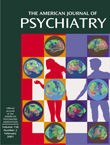Lack of Seasonal Mood Change in Icelanders
To the Editor: The finding of a lack of seasonal affective disorders in Iceland, from a study by Magnusson et al. (1), is striking, especially when compared with findings from other countries of similar latitude. One reason for this finding may be the high content of fish in the Icelandic diet (225 lb per person per year) (2). The authors noted a similar and unexpected previous finding of a low prevalence of seasonal affective disorders in Japan, which also has a high per capita intake of fish (147 lb per person per year) (2). Despite a greater exposure to light in winter, most other countries have higher rates of seasonal affective disorder. Per capita fish intake in pounds per person per year is as follows: Canada, 51; Finland, 72; Netherlands, 25; Sweden, 59; Switzerland, 30; United Kingdom, 41; and the United States, 48 (2). We suggest that the difference in the prevalence of seasonal affective disorders between Icelandic descendants and other citizens in Winnipeg may be due to a cultural tradition of fish consumption, rather than differences in genetic predisposition. Our proposition is consistent with the finding in a cross-national analysis that greater seafood consumption predicted lower prevalence rates of major depression (r=–0.84, p<0.005) (3).
Seafood is rich in the omega-3 essential fatty acids eicosapentaenoic and docosahexaenoic acids. Docosahexaenoic acid is selectively concentrated in synaptic membranes, where it has a crucial role in maintaining the biophysical properties determining receptor conformation (4). Mechanisms through which eicosapentaenoic and docosahexaenoic acids may diminish depressive symptoms have recently been reviewed (5) and include modulation of serotonin turnover, phosphoinositol-mediated signal transduction, and L-type calcium channel regulation. Depletions of docosahexaenoic acid in RBC phospholipid membranes have been reported in depression (6). A placebo-controlled study in bipolar disorder (7) showed that supplementation with docosahexaenoic and eicosapentaenoic acids had marked mood-stabilizing and antidepressant activity. Thus, high levels of fish consumption should be considered a potential etiology for the finding of a lack of seasonal affective disorder among the Icelandic population.
1. Magnusson A, Axelsson J, Karlsson MM, Oskarsson H: Lack of seasonal mood change in the Icelandic population: results of a cross-sectional study. Am J Psychiatry 2000; 157:234–238Link, Google Scholar
2. Fish and Fishery Products: World Apparent Consumption Based on Food Balance Sheets (1961–1993): FAO Fisheries Circular 821, revision 3. Rome, Food and Agriculture Organization of the United Nations, Nov 1996Google Scholar
3. Hibbeln JR: Fish consumption and major depression (letter). Lancet 1998; 351:1213Crossref, Medline, Google Scholar
4. Mitchell DC, Gawrisch K, Litman BJ, Salem N Jr: Why is docosahexaenoic acid essential for nervous system function? Biochem Soc Trans 1998; 26:365–370Google Scholar
5. Hibbeln JR, Umhau JC, George DT, Shoaf SE, Linnoila M, Salem N Jr: Plasma total cholesterol concentrations do not predict cerebrospinal fluid neurotransmitter metabolites: implications for the biophysical role of highly unsaturated fatty acids. Am J Clin Nutr 2000; 71(1 suppl):331S–338SGoogle Scholar
6. Peet M, Murphy B, Shay J, Horrobin D: Depletion of omega-3 fatty acid levels in red blood cell membranes of depressive patients. Biol Psychiatry 1998; 43:315–319Crossref, Medline, Google Scholar
7. Stoll AL, Severus E, Freeman MP, Rueter S, Zboyan HA, Diamond E, Cress KK, Marangell LB: Omega-3 fatty acids in bipolar disorder: a preliminary double-blind, placebo-controlled trial. Arch Gen Psychiatry 1999; 56:407–412Crossref, Medline, Google Scholar



